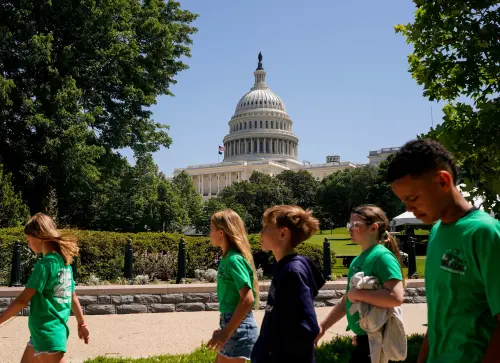Introduction
Investors are increasingly concerned that projections for the U.S. national debt could rise significantly due to a sweeping tax and spending bill, raising the possibility that bond yields will remain elevated for an extended period.Context
Market sensitivity to the deteriorating U.S. debt profile has been heightened since the U.S. sovereign credit rating was downgraded on May 16. Long-dated bonds have faced particular pressure from concerns over the federal deficit, illustrated by a disappointing response to a recent 20-year bond auction and the 30-year bond yield reaching its highest level since October 2023. This rise in bond yields typically translates into increased borrowing costs for consumers, businesses, and governments.Developments
The Congressional Budget Office estimates that the House of Representatives' version of the legislation could add approximately $3.8 trillion to the existing $36.2 trillion in federal debt over the next decade. Following a recent House vote, the bill will move to the Senate, where deliberations are expected to commence after the Memorial Day recess. While some elements of the bill may be modified, senators are anticipated to advocate for adjustments to the proposed spending cuts.Christopher Hodge, chief U.S. economist at Natixis, commented on the Senate's likely approach: "The Senate will be less keen to include deep spending cuts, and the longer the debate continues, the more likely the price tag goes up." Meanwhile, the President is aiming for a finalized bill by July 4. However, delay could complicate matters, as softer economic data might make spending cuts even more unpopular among senators.
Despite these concerns, investors remain cautiously optimistic about potential boosts to growth from tax cuts and projected tariff revenues, which they are weighing in their investment strategies. Trump and his administration, including White House Press Secretary Karoline Leavitt, have pointed out the $1.6 trillion in spending cuts when addressing the bill's impact on the deficit. Prominent Republicans maintain that tax cuts could invigorate economic growth and yield an additional $2.5 trillion in revenue over the next ten years.
A note from Morgan Stanley indicated that the tax bill is poised to benefit sectors with significant capital expenditures and U.S. revenue, highlighting industrials, communications services, and energy as key beneficiaries. Morgan Stanley also estimated that tariffs could generate $2 trillion in revenue over a decade, although this figure is subject to change due to ongoing trade negotiations.
Naomi Fink, chief global strategist at Nikko Asset Management, acknowledged that while the tax cuts might be aimed at stimulating demand, their effectiveness depends on whether they can do so faster than they inflate government debt funding costs.
Some investors have voiced disappointment in the bill's current iteration. Mohit Mittal, chief investment officer for core strategies at PIMCO, noted that investors had anticipated more substantial spending cuts, suggesting that over the next decade, the final bill might result in an increase of $50 billion to $75 billion per year beyond market expectations.
Steve Sosnick, chief strategist at Interactive Brokers, remarked that global bond markets are wary of legislation that could exacerbate budget deficits within the world's largest economy. Nevertheless, higher yields on long-term bonds continue to attract investors, though many now demand greater compensation.
Long-term investors, such as Thanos Bardas, senior portfolio manager at Neuberger Berman, find the steeper yield curve appealing, believing that bond yields will provide satisfactory returns in the upcoming months. Others, like Paul Karger, managing partner of TwinFocus, have increased their holdings in longer-term bonds.
Conversely, Mike Reynolds, chief investment strategist at Glenmede, believes that yields have yet to reach levels that warrant purchasing long-term bonds.
As the House bill and the forthcoming Senate debate unfold, investors will be keenly watching their potential impacts on financial markets, which could subsequently influence Congressional decisions. Brian Gardner, chief Washington policy strategist at Stifel Financial, emphasizes that while lawmakers are attentive to public sentiment, they are also aware of how market fluctuations can affect consumer lending rates. U.S. senators, therefore, will be monitoring signals from Wall Street closely.
